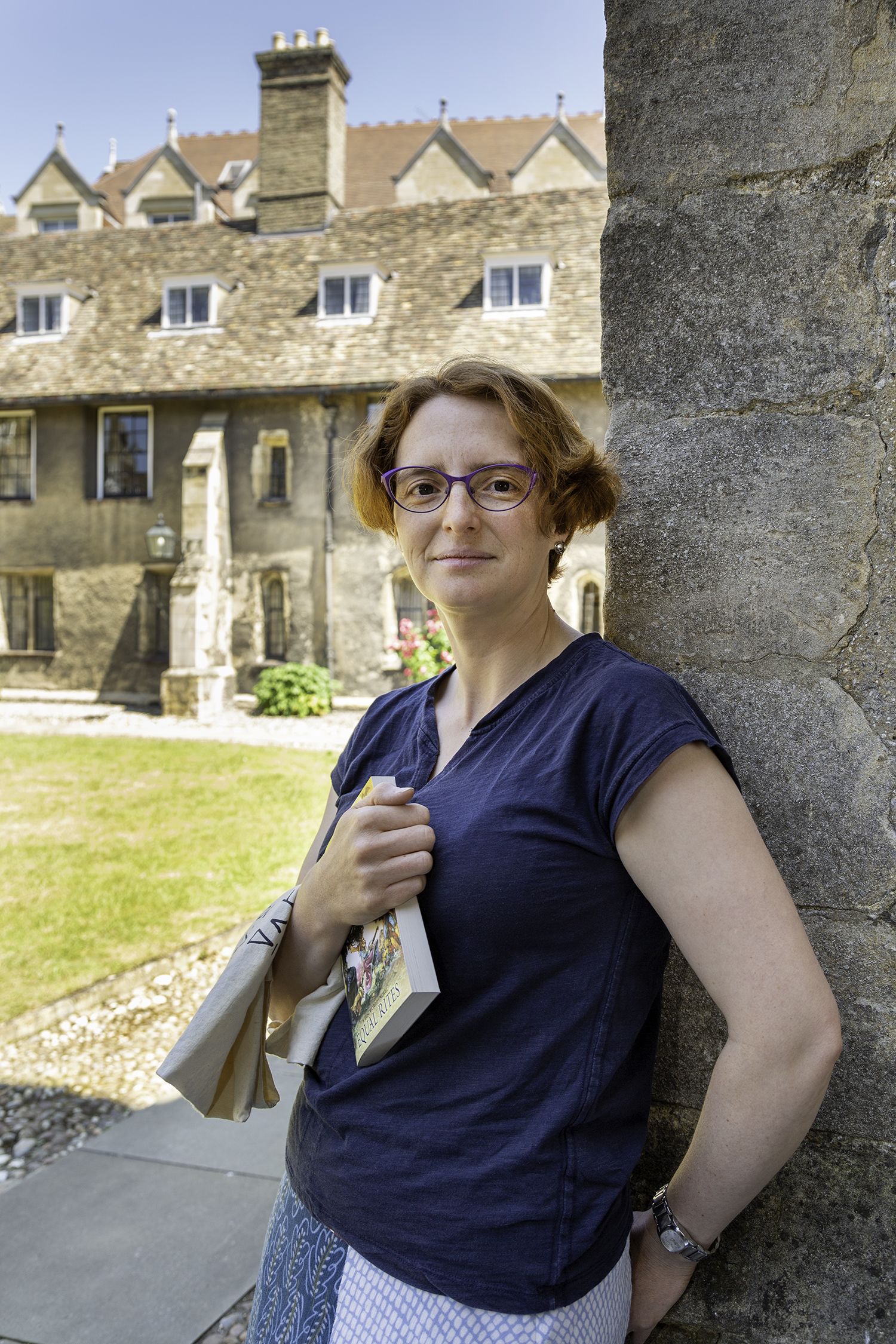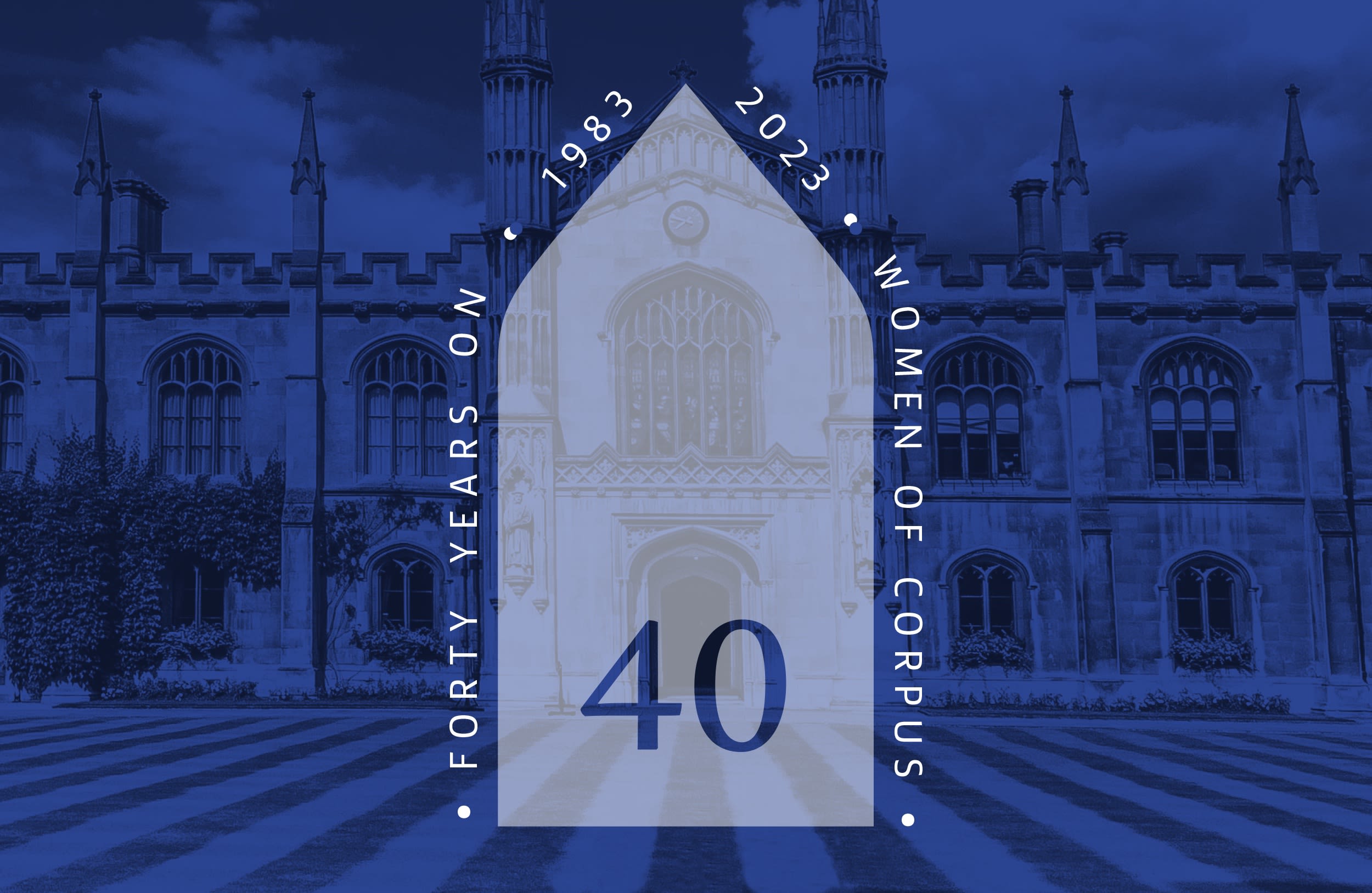Dr Nicola Humphry-Baker
BSc (Victoria) PhD
PHYSICS

“I chose to have my portrait taken in Old Court with the Old Cavendish Laboratory peeking up in the background because I am a physicist working to inspire the next generation to study physics. The Cavendish was the very first teaching laboratory in the UK in Physics and I like that history.
The bag that I have over my arm is a tote bag that we hand out at Isaac Physics events. On it are Maxwell’s equations that explain electromagnetism and ultimately that light is an electromagnetic wave. I find the interaction between light and matter really intriguing, so in addition to representing my work it is something that interests me.
I am holding Equal Rites by Terri Pratchett. I’m not sure much more needs to be said really, other than it also contains one of my favourite characters of all time, Granny Weatherwax.
I have always found Corpus to be a very friendly and welcoming community. The creation of lunches and dinners for female Fellows once a term has been a good opportunity to get to know the other female Fellows and learn from the more experienced members of the College.”
Nicki Humphry-Baker studied Physics at the University of Victoria, Canada, and completed her PhD in Physics at the University of Cambridge in 2013. Her doctoral research concerned the interaction of light and matter in novel photovoltaic devices. After finishing her PhD Nicki joined Isaac Physics, a DfE funded project which provides free support for students and teachers in Physics, Maths, Chemistry and soon Biology. Nicki is now Assistant Director of Isaac Physics, responsible for the content on their online learning platform.
Nicki was previously involved with Corpus Christi as the Schools Liaison Officer between 2013 and 2015. She visited schools and dispelled any myths teachers and students might have had about the University of Cambridge and promoted the college. Since 2021, she also leads the Outreach team at the Cavendish Laboratory in Cambridge. Her team encourage students to think about physics as a possible pathway for their future selves by introducing them to scientists in research and from various industries. While this has traditionally been an endeavour targeted at secondary school students, the team is venturing into primary schools to try to halt the decline of interest in the sciences in early secondary schools.
